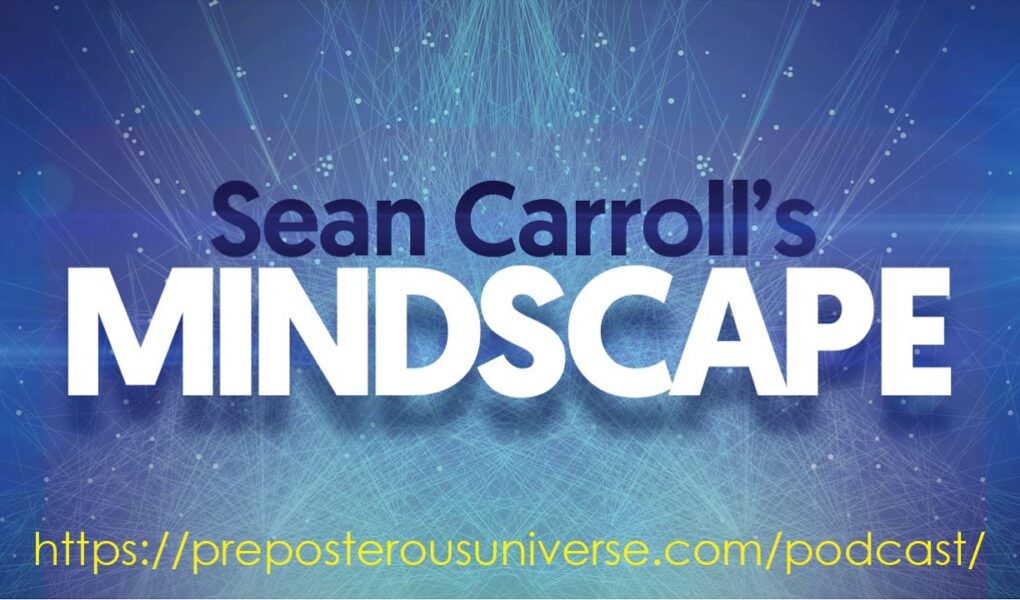Sean Carroll
Blog post with audio player, show notes, and transcript: https://www.preposterousuniverse.com/podcast/2020/01/06/78-daniel-dennett-on-minds-patterns-and-the-scientific-image/
Patreon: https://www.patreon.com/seanmcarroll
Wilfrid Sellars described the task of philosophy as explaining how things, in the broadest sense of term, hang together, in the broadest sense of the term. (Substitute “exploring” for “explaining” and you’d have a good mission statement for the Mindscape podcast.) Few modern thinkers have pursued this goal more energetically, creatively, and entertainingly than Daniel Dennett. One of the most respected philosophers of our time, Dennett’s work has ranged over topics such as consciousness, artificial intelligence, metaphysics, free will, evolutionary biology, epistemology, and naturalism, always with an eye on our best scientific understanding of the phenomenon in question. His thinking in these areas is exceptionally lucid, and he has the rare ability to express his ideas in ways that non-specialists can find accessible and compelling. We talked about all of them, in a wide-ranging and wonderfully enjoyable conversation.
Daniel Dennett received his D.Phil. in philosophy from Oxford University. He is currently Austin B. Fletcher Professor of Philosophy and co-director of the Center for Cognitive Studies at Tufts University. He is known for a number of philosophical concepts and coinages, including the intentional stance, the Cartesian theater, and the multiple-drafts model of consciousness. Among his honors are the Erasmus Prize, a Guggenheim Fellowship, and the American Humanist Association’s Humanist of the Year award. He is the author of a number of books that are simultaneously scholarly and popular, including Consciousness Explained, Darwin’s Dangerous Idea, and most recently Bacteria to Bach and Back.
Source



"Welcome to 2020". Thanks, I'm sure it's going to be absolutely awesome.
Welcome to 2020 🙂
What would Noam Chomsky say if he joined in this fasad?
We hold dogs morally responsible for their actions. Does that make a dog more conscious than a bear? 🤔
Before children learn language they know a rap on the wrist.
My take: concept driven causal loops (in the brain). (In a deterministic universe) Don't mention it. O:)
Concept driven causal loops.
Good stuff.
I love his command of the literature. Hours of recalling authors and papers written over decades. I’m like oh that’s the famous actor I know well in this movie, why can’t I remember their name….
Even great minds can be captured by an initial fallacy that pollutes the rest of their thinking. There were many brilliant Christian philosophers. Dennett's problem is that he is motivated to defend the idea of human free will, and this poisons many of his conclusions. When he talks about gazelles and lions, how does he know with any certainty what the conscious experience of the lion is? How does he know that the lion doesn't understand, in its own conscious way, that the gazelles jumping are not good for hunting? In fact they DO UNDERSTAND THIS because they don't chase preening gazelles. Human understanding is itself predicated on sensory inputs and no different than lion understanding IN NATURE… It is perhaps more complex than lion understanding, it may tell a more compelling story, but "understanding" itself is not fundamentally different in nature. Human's are likely to run away if another human attacks them with a weapon. The human mind can tell itself a story about why it's running away, but the fundamental reason is your brain saw a weapon and said "oh shit" – No different than the conclusion drawn by the lion's brain not to chase a preening gazelle. In both cases the mind makes the decision.
Why not panpsychism? I know human brain can be simulated, but there is a qualia feeling obviously. So we can just think everyhing has some kind of consciousness. For me that explains more than just beliving there is no ‘ghost’ in the shell.
My daughter has non-verbal autism, but for me it is obvious she has some level of ‘consciousness’ which gives me whole moral dignity to her. In the same way. dogs and dolphins have consciousness, they could feel pain and suffer, so I can’t hurt their feelings. Maybe Daniel you just regards this as all language based made up stuff – which doesn’t have instrinsic value, but what the hell on earth is there any more important than human consciousness? I don’t think killing a character in my Diablo 3 game has the same guilt than killing a real person in the real life. Of course this is all about just morality, but without morality, what is left in the value of human life?
The reason the human mind is different is they are obliged to articulate reasons… That's a good reason given by a human 😜😆
In regards to free will, it seems like Dan is more concerned with the damaging effects of the free will illusion rather than the question of if it’s real or not. Even if people who think free will is real to function better in life, I don’t think that’s an argument for the truth of the question. It reminds me of when religious people believe that all of morality will fall apart if you don’t believe in god, and don’t acknowledge whether the belief in god is true or not. I’m surprised that he thinks this way about free will and if he has any examples of how people that don’t believe in free will are damaging themselves in the process.
"user illusion"… So he says that there is a user to receive the illusion. Why should there be a user to receive the illusion in his view? For what should it be for? There needn't be a user to receive an illusion if you are a zombie. I think he disproves himself wonderfully in this sentence.
Adore Dennett. Sean please join him for The four hoseman 2.0! Hitchen's can't be replaced like ever but the message and discussion would be so great for countering magical thinking.
When you ask scientists about 'voice' they are speechless and that should be answer enough :))
Can motor proteins really capture useful energy from random motion of water molecules? This is stated around 26:32
I would love to have a repeat of this guest, always a pleasure to listen to you two
So this guy solved the hard problem? How?
I love how conspiracy theorists deny sciences, and scientists, when, legit, scientists ARE the OG skeptics….
The difference is "critical (especially for self) thinking skills"….
Who was it? Wittgenstein who said, "you can't think decently if you aren't willing to hurt yourself" …
Art kinda doing that what religions claim to do. Preserving religions means that they will claim they was all about it all along.
Philosophical zombies are a way of dehumanizing people and when you do this it becomes more likely that atrocities may be committed either minor or even deadly.
Enjoyable!
Dan Dennett is just about the best thinker I have ever read and listened to. Maybe that is because he has the skill to explain his ideas in a way that makes them easily accessible. Two years later I listen to this podcast again and am reminded of this gem of a person. And to have him paired with my favorite theoretical physicist is a delightful treat.
Thanks so much for this podcast.
Degrees of freedom in humans are intrinsically linked economic status, ie ,power
Great episode!
Can’t listen to this segment enough.
This one was fantastic